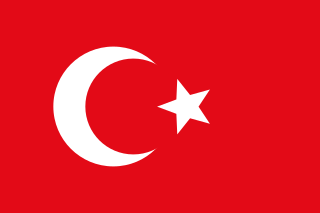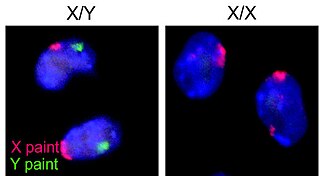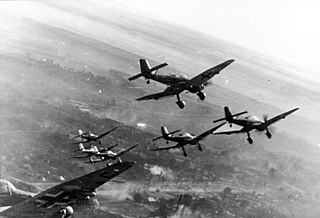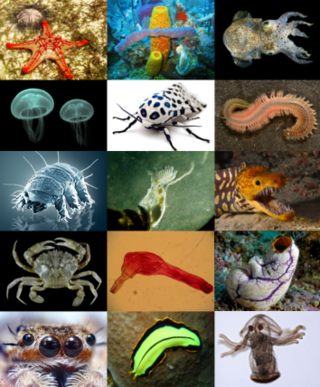
Education is the transmission of knowledge, skills, and character traits. There are many types of education. Formal education happens in a complex institutional framework, like public schools. Non-formal education is also structured but takes place outside the formal schooling system. Informal education is unstructured learning through daily experiences. Formal and non-formal education are divided into levels. They include early childhood education, primary education, secondary education, and tertiary education. Other classifications focus on the teaching method, like teacher-centered and student-centered education. Forms of education can also be distinguished by subject, like science education, language education, and physical education. The term "education" can also refer to the mental states and qualities of educated people and the academic field studying educational phenomena.

India, officially the Republic of India, is a country in South Asia. It is the seventh-largest country by area; the most populous country as of June 2023; and from the time of its independence in 1947, the world's most populous democracy. Bounded by the Indian Ocean on the south, the Arabian Sea on the southwest, and the Bay of Bengal on the southeast, it shares land borders with Pakistan to the west; China, Nepal, and Bhutan to the north; and Bangladesh and Myanmar to the east. In the Indian Ocean, India is in the vicinity of Sri Lanka and the Maldives; its Andaman and Nicobar Islands share a maritime border with Thailand, Myanmar, and Indonesia.

The International Standard Book Number (ISBN) is a numeric commercial book identifier that is intended to be unique. Publishers purchase or receive ISBNs from an affiliate of the International ISBN Agency.

The Immaculate Conception is the belief that the Virgin Mary was free of original sin from the moment of her conception. It is one of the four Marian dogmas of the Catholic Church. Debated by medieval theologians, it was not defined as a dogma until 1854, by Pope Pius IX in the papal bull Ineffabilis Deus. While the Immaculate Conception asserts Mary's freedom from original sin, the Council of Trent, held between 1545 and 1563, had previously affirmed her freedom from personal sin.

Muhammad was an Arab religious, social, and political leader and the founder of Islam. According to Islamic doctrine, he was a prophet divinely inspired to preach and confirm the monotheistic teachings of Adam, Abraham, Moses, Jesus, and other prophets. He is believed to be the Seal of the Prophets within Islam, with the Quran as well as his teachings and practices forming the basis for Islamic religious belief.

Mohandas Karamchand Gandhi was an Indian lawyer, anti-colonial nationalist and political ethicist who employed nonviolent resistance to lead the successful campaign for India's independence from British rule. He inspired movements for civil rights and freedom across the world. The honorific Mahātmā, first applied to him in South Africa in 1914, is now used throughout the world.

The Ottoman Empire, historically and colloquially known as the Turkish Empire, was an empire that controlled much of Southeast Europe, West Asia, and North Africa between the 14th and early 20th centuries. The empire also controlled a southeastern region of Central Europe from the 16th to the late 17th century.

Poland, officially the Republic of Poland, is a country in Central Europe. It is divided into 16 administrative provinces called voivodeships, covering an area of 312,700 km2 (120,700 sq mi). Poland has a population of over 38 million and is the fifth most populous member state of the European Union. Warsaw is the nation's capital and largest metropolis. Other major cities include Kraków, Wrocław, Łódź, Poznań, Gdańsk, and Szczecin.

The Philippines, officially the Republic of the Philippines, is an archipelagic country in Southeast Asia. In the western Pacific Ocean, it consists of 7,641 islands, with a total area of 321,918 square kilometres, which are broadly categorized in three main geographical divisions from north to south: Luzon, Visayas, and Mindanao. The Philippines is bounded by the South China Sea to the west, the Philippine Sea to the east, and the Celebes Sea to the south. It shares maritime borders with Taiwan to the north, Japan to the northeast, Palau to the east and southeast, Indonesia to the south, Malaysia to the southwest, Vietnam to the west, and China to the northwest. It is the world's twelfth-most-populous country, with diverse ethnicities and cultures. Manila is the country's capital, and its most populated city is Quezon City; both are within Metro Manila.

Sex is the trait that determines whether a sexually reproducing organism produces male or female gametes. A male organism produces small mobile gametes, while a female organism produces larger, non-mobile gametes. An organism that produces both types of gamete is called a hermaphrodite. During sexual reproduction, a male and a female gamete fuse to form a zygote, which develops into an offspring that inherits traits from each parent.

The Vietnam War was a conflict in Vietnam, Laos, and Cambodia from 1 November 1955 to the fall of Saigon on 30 April 1975. It was the second of the Indochina Wars and was a major conflict of the Cold War. While the war was officially fought between North Vietnam and South Vietnam, the north was supported by the Soviet Union, China, and other communist states, while the south was supported by the United States and other anti-communist allies, making the war a proxy war between the United States and the Soviet Union. It lasted almost 20 years, with direct U.S. military involvement ending in 1973. The conflict also spilled over into neighboring states, exacerbating the Laotian Civil War and the Cambodian Civil War, which ended with all three countries officially becoming communist states by 1976.

William Shakespeare was an English playwright, poet and actor. He is widely regarded as the greatest writer in the English language and the world's pre-eminent dramatist. He is often called England's national poet and the "Bard of Avon". His extant works, including collaborations, consist of some 39 plays, 154 sonnets, three long narrative poems, and a few other verses, some of uncertain authorship. His plays have been translated into every major living language and are performed more often than those of any other playwright. Shakespeare remains arguably the most influential writer in the English language, and his works continue to be studied and reinterpreted.

World War II or the Second World War was a global conflict that lasted from 1939 to 1945. The vast majority of the world's countries, including all the great powers, fought as part of two opposing military alliances: the Allies and the Axis. Many participating countries invested all available economic, industrial, and scientific capabilities into this total war, blurring the distinction between civilian and military resources. Aircraft played a major role, enabling the strategic bombing of population centres and delivery of the only two nuclear weapons ever used in war. It was by far the deadliest conflict in history, resulting in 70–85 million fatalities.

Jesus, also referred to as Jesus Christ, Jesus of Nazareth, and many other names and titles, was a first-century Jewish preacher and religious leader. He is the central figure of Christianity, the world's largest religion. Most Christians believe Jesus to be the incarnation of God the Son and the awaited Jewish messiah, the Christ that is prophesied in the Hebrew Bible.

Adolf Hitler was an Austrian-born German politician who was the dictator of Germany from 1933 until his suicide in 1945. He rose to power as the leader of the Nazi Party, becoming the chancellor in 1933 and then taking the title of Führer und Reichskanzler in 1934. During his dictatorship, he initiated World War II in Europe by invading Poland on 1 September 1939. He was closely involved in military operations throughout the war and was central to the perpetration of the Holocaust, the genocide of about six million Jews and millions of other victims.

The United States of America (USA), commonly known as the United States (U.S.) or America, is a country primarily located in North America. It consists of 50 states, a federal district, five major unincorporated territories, and nine Minor Outlying Islands. It includes 326 Indian reservations. The U.S. is the world's third-largest country by land and total area. It shares land borders with Canada to its north and with Mexico to its south and has maritime borders with the Bahamas, Cuba, Russia, and other nations. With a population of over 333 million, it is the most populous country in the Americas and the third-most populous in the world. The national capital of the United States is Washington, D.C., and its most populous city and principal financial center is New York City.

World War I or the First World War was a global conflict fought between two coalitions: the Allies and the Central Powers. Fighting took place throughout Europe, the Middle East, Africa, the Pacific, and parts of Asia. One of the deadliest wars in history, it resulted in an estimated 9 million soldiers dead and 23 million wounded, plus another 5 million civilian deaths from various causes. Millions more died as a result of genocide, and the war was a major factor in the 1918 Spanish flu pandemic.

Islam is an Abrahamic monotheistic religion centered on the Quran and the teachings of Muhammad, the religion's founder. Adherents of Islam, called Muslims, number approximately 1.9 billion globally and are the world's second-largest religious population after Christians.

English is a West Germanic language in the Indo-European language family, whose speakers, called Anglophones, originated in early medieval England. The namesake of the language is the Angles, one of the ancient Germanic peoples that migrated to the island of Great Britain. Modern English is both the most spoken language in the world and the third-most spoken native language, after Mandarin Chinese and Spanish. It is also the most widely learned second language in the world, with more second-language speakers than native speakers.

Animals are multicellular, eukaryotic organisms in the biological kingdom Animalia. With few exceptions, animals consume organic material, breathe oxygen, have myocytes and are able to move, can reproduce sexually, and grow from a hollow sphere of cells, the blastula, during embryonic development.




















